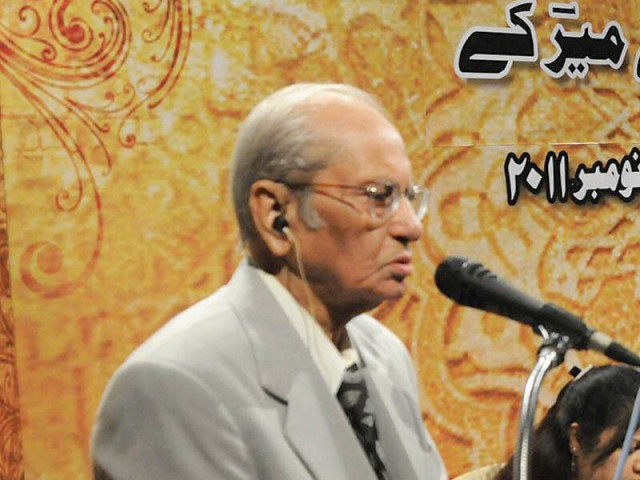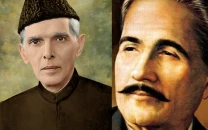Famously arrogant Mir Taqi Mir, the poet who called his peers insects
Experts discuss how Mir’s work is timeless, needs to be understood outside the verse.

The scholar, who must be in his late 80s, could barely walk unassisted but was more than ready to take a walk down memory lane to regale the audience at the International Urdu Conference with the tale of his first encounter with Mir.
“The first time I met Mir was through my ailing grandfather,” he said. “He read out some of Mir’s verses to me and although I did not understand much, I realised that he was an important poet.”
And then, after reading a complete set of poetry and prose by Mir, he saw the poet in a new light.
On the second day of the conference at the Arts Council of Pakistan on Wednesday, the topic of discussion in the first session was Mir’s timelessness - Saray zamanay Mir ke. Dr Javed Manzar, an Urdu scholar, kicked the session off with a little background into when and where Mir was born. “Life was not easy for Mir,” he said. “He lost his father at the age of 11 and did not get along with his step-brother.”
For years, critics and poets had tried to undermine Mir’s poetry because he was outspoken. “You may not like his poetry,” he said. “But years from now someone else might fall madly in love with it and that is what makes him so special.”
While talking about Mir and his famed arrogance, Dr Manzar said that the poet once referred to his contemporaries as insects.
The speakers, including Sahar Ansari, Zehra Nigah and Raza Ali Abedi, carried on to discuss why Mir, unlike other poets from the 18th century used to write in Urdu instead of Persian. They claimed that this was one of the reasons poets and writers from the following generations were influenced by him, including Altaf Hussain Hali and Akbar Allahabadi. Indeed, according to poet Dr Fatima Hasan, although Allama Iqbal never mentioned Mir in his verses, he was certainly influenced by him.
Aligarh Muslim University Dean Dr Qazi Afzaal Hussain, who flew in from India to attend the four-day conference, said that it was impossible to understand Mir through his poetry alone. “We have seen critics and poetry enthusiasts trying to estimate what poets are like through their work,” he said. “They forget that what really matters is not mentioned in the verses.”
The dean added that Urdu was fading in India as young people failed to realise that it was not just a mode of communication but a way to express yourself.
Love and drink and revel,
Cry, yes, when hurt, sad or hungry,
Be, as you wish or cannot help,
Bur never wantonly;
Lest you set at naught,
Equilibrium of the Cosmic Mystery.
This limitless world of heavens and life,
Kind, majestic, severe - the Wonders,
Is but a fabric dainty,
Of light and colour,
Like the dream of some fairy;
Breathe gently, oh, gently.
(Translation by Abul Akhyar)
Published in The Express Tribune, November 24th, 2011.



















COMMENTS
Comments are moderated and generally will be posted if they are on-topic and not abusive.
For more information, please see our Comments FAQ